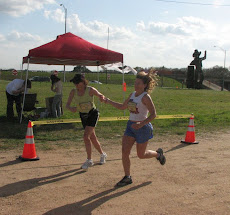Kitchen scales, or bathroom scales?
Let’s talk diet, chew the fat (as they say) about the somewhat contradictory nature of how we eat, why we eat, and what we should eat.
Although we all know some general rules, like cut down on the junk food, the fast food, the fat and calorie laden food, how many really abide by these general rules? Not many, from the looks of our general population. Come on, let’s dig in and resist the popular and hedonistic approach to eating. Without making this commitment, how are we going to achieve other related goals of fitness and discipline?
But I digress, for what I am really thinking about is the disparity between the non-athlete’s need to “diet” and the athlete’s quite different needs. To confuse the two can be counterproductive at best and debilitating at worst. When I think of diet, it’s the traditional rules which come to my mind: count the calories, read the labels, burn some calories. That’s it in a nutshell: don’t intake more calories than you burn, and take in even fewer calories if you intend to lose weight. But how does this apply to the athlete?
First, I love the definition given me by Shelly Campbell that we become athletes when we make the commitment to exercise and become physically active, whether it be swimming, running, biking, dance aerobics or aggressively walking (a saunter won’t do it). As athletes we now must adjust our ideas about dieting in order to insure we aren’t jeopardizing the fuel supply we need for our increased physical activity. Yet we are trapped by the old concepts, the basic dieting which is done by the less active. We do our best to practice calorie counting, portion control and resisting those tempting and harmless looking cookies which pack 150 calories into each mouthwatering morsel. We lose weight, or at least stabilize the situation as muscle begins to displace fat. But here the trouble begins for many of us.
There’s been a crusade against carbohydrates and I suppose there are some valid arguments to support squeezing back on carbs. That is, unless you are a practicing athlete. Higher levels of physical activity require carbohydrates as the fuel source. If you run as exercise, you need to insure you are getting enough carbs in your diet. Yes, it’s one more thing to have to count, and one more listing we must seek out when reading labels on packaged foods. We also should become familiar with measuring portions when we are preparing our foods from scratch. I admit that I don’t, and that’s good reason for us all to add this additional layer to our dietary control. Let’s discuss this sooner than later within the context of this public forum.
Another huge concern which probably also requires dietary scales in our kitchens is the issue of protein. So maybe an Atkins style diet has it at least partially right for the athlete by emphasizing the importance of protein in the diet. The latest I have read, in an article titled “Protein Power”(by Matthew Kadey) in the March-April 2007 edition of Geezerjock magazine, presents yet another formula we have to consider in designing our proper diet. According to the article, if you are into a program of heavy endurance training, like marathon running or long distance cycling (and I guess triathlon would qualify), then you ought to be consuming 0.6-0.7 grams of protein for every pound of body weight. We are all going to need to revisit our daily diets and insure that we are not penalizing ourselves and our performance by getting too little protein. And when we get that protein is also of some importance! I have seen studies which indicate we have a 45 minute window of opportunity after exercising to intake a combination of carbs and protein, this window allowing the most efficient opportunity for the body to put these dietary items to use. According to the article already cited in Geezerjock, “it’s recommended that one consume at least 12-15 grams of protein within 30 minutes after exercise.”
As you can see, dieting is an altogether different beast once you begin training for the big event, or for the rest of your life. Let’s get together and begin using the kitchen scales, not the bathroom scales, as the measure of where we are headed in this exciting adventure of fitness and discovery.




2 comments:
Ah yes the PROTEIN Issue! Having been a vegetarian and on occasion anemic when I began my larger exercise routine I quickly realized that my current lifestyle of eating was not going to cut it. Not to mention that I got sick and tired of being sick and tired. Enter 100 grams of protein a day at least. I saw results immediatly in not only my performance but also in my lean body mass as well as in my brain. Protein helps us think better as well, and reduces our cravings for those things we " should not eat" . As important as it is to set your self up for the success in your next work out physically its also important to set yourself up for the NEXT work out nutritionally. How do you get at least 100 grams? I started each morning with a protein shake and then had a "true" portion at lunch and dinner. Carbs I have never counted. The most important thing to me is to count the protein and balance the fat intake. I found the more I did exercise wise, the more I desired healthy foods. When training for Ironman nothing seemed better than an entire,oh yes, entire head of cauliflower mixed with tons of brocolli. And of course a visit to the Sonic after a LONG bike ride. Listen to your body it will tell you what it needs and dont be tooo over concerned with counting. This is meant to be healthy and fun. And dont forget the window you have after exercising to replace all those things you lost. : )
Nutrition...Wow. This is a really big topic and one that I hope encourages a lot of feedback.
When I read this, two things came to mind. 1- the word "diet" and the negative assumptions/emotions that can be evoked with mere mention of the word and 2- the Low-Carb Fad. GRRR...
Diet simply means a way of eating. In essence, we are always "dieting" but unfortunately very few chose to do it with any more knowledge than the latest media publication or TV advertisement.
Every day I work with individuals who suffer from what I like to term the "carb-coma". That is chronic fatigue and lack of focus that can accompany the ingestion of too many carbohydrates, especially simple sugars. For example, it is important to read nutrition labels and avoid foods containing high fructose corn syrup.
Toodles to those individuals who are aware of the very dangerous but socially accepted processed sugar and sugar additive addiction that does little more than encourage immune suppression, is linked to adrenal fatigue, can contribute to adult on-set diabetes, cause anxiety, and has recently been linked to systemic inflammation. Being an athlete certainly gives you an excuse to forego processed simple sugars but eating for health gives you the reason to do so.
As for the low-carb diets, staying away from or reducing the amount enriched flour in the diet is absolutely a good idea. However, fiborous carbohydrates are essential to good health. That includes FRESH fruits and vegetables. There are many health benefits to these items, but fiber comes near the top of the list. It is important to maintain at least 20-25g of fiber in the diet a day.
Unfortunately, the average american only consumes 10-15g and thus I find it frustrating when I speak with a person who is already "good" carb deficient and they chose to pursue an even lower carb diet without regard to the type of carb to avoid.
There are many components to nutrition. But the bottom line... include 4-5 (1) cup servings of fresh fruits and vegetables in your diet EVERY DAY.
Post a Comment